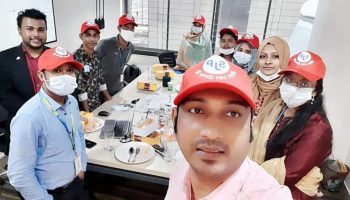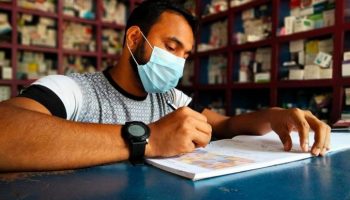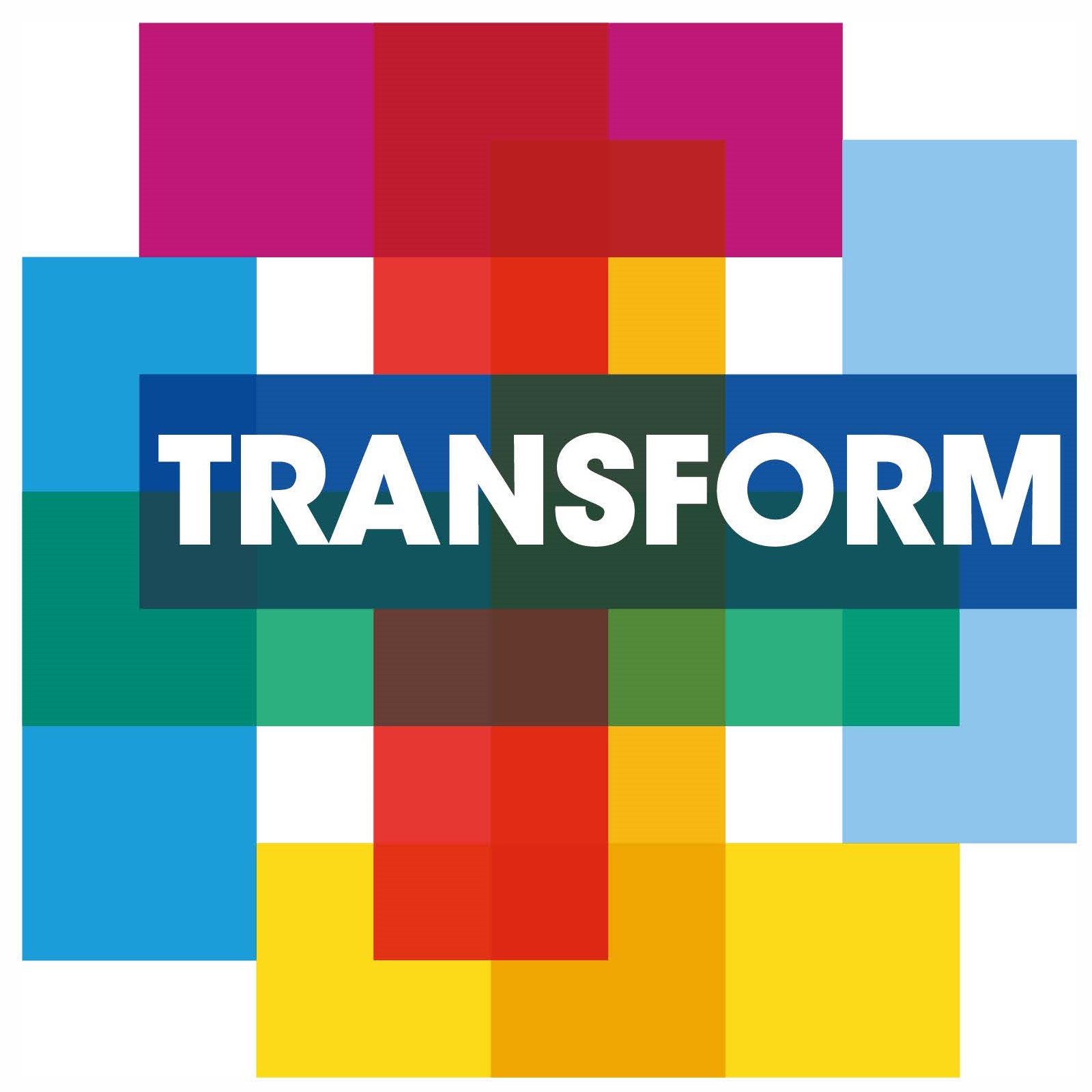How clear and consistent marketing and communications helped SJP increase sales and change service users’ behaviour
Published on: 25/08/2021
By-line: Clara Bouchet-Doumenq, Country Director of the Bangladesh Programme
The social enterprise of Eau et Vie (E&V) – Shobar Jonno Pani (SJP) – works to ensure permanent access to reliable treated water services in deprived urban neighbourhoods of Bangladesh, by providing piped water directly to homes at an affordable price. Predominantly tackling SDG 6: ensuring the availability and sustainable management of water and sanitation for all, we set ourselves a high ambition: how do we provide safe access to water alongside hygiene awareness programmes and community empowerment activities to create long term impact and social cohesion?
The challenge
Our CEO, Philippe de Roux, was motivated to solve this question when he witnessed the outrageous pricing of water sold by illegal water resellers during his time living in the suburban cities of the Philippines. He saw that the water was unclean and unreliable, and that resellers were taking advantage of vulnerable families living illegally in these communities.
Looking to public services to address the issue, Philippe noticed that the majority of low-income communities were not being provided with access to safe water. Utilities struggled to supply safe water alongside simple and efficient service charges as most of their customers live in poverty and don’t fully understand the importance of access to safe water. So, he decided to create a model that would tackle the issue of water access in these areas, encouraging good hygiene practices along the way.
We quickly realised that, in order to provide a viable long-term impact and to be adaptable for individual communities, we needed access to more resources and support, so we started our transition from an NGO to a hybrid model, creating a social enterprise working in parallel with the NGO. We believe this brings the best of both worlds. Our social enterprise allows us to build up a financially viable business for delivering piped water to low-income homes. Our NGO provides behaviour change and community support such as awareness about the importance of drinking clean water and training fire fighters to extinguish the common and terrifying fires which can happen in the overpopulated areas where we work. However, this dual structure often confused our service users and meant it was hard for us to convince them to pay for services that they thought should be provided for free by an NGO.
The solution: building a separate brand identity for our social enterprise, creating engaging materials and training locally recruited staff sales agents
It was thanks to the support of TRANSFORM that we were able to do this. We approached them with a simple aim: how do we create an effective sales force to increase our reach with local service users. It was during this process, with guidance and funding from TRANSFORM, that we also collaborated with consultancy firm BoPInc.
As experts in helping social enterprises validate their business models, TRANSFORM’s vital piece of advice was to: hire a dedicated marketing team with on-the-ground experience and train them to integrate new marketing materials and pitch tactics that will sensitise service users about the benefits of access to clean water. This was invaluable to increasing our door-to-door sales.
Our next challenge was to increase our marketing visibility. We worked closely with BoPInc to identify and create a dedicated team of promoters to become our efficient and committed sales force. Via knowledge and insight-sharing sessions, hosted by TRANSFORM, we discovered new, efficient ways to equip our sales force to reach and engage potential service users through social marketing materials such as stickers, flyers, and promotional banners. We even created a Bollywood style video to help our users understand the service. This was filmed in the low-income community so people recognised the setting and felt that the service was for people like them.
Crucially, all of our assets and materials are now adaptable to all audiences, and also focus on different local needs, illustrating the many everyday problems facing slums and highlighting the solutions that E&V can provide. As a result, we’ve curated a motivated sales force with a sense of purpose, underpinned by a streamlined approach to sales.
During the project, our consumer research revealed that people were either confused about whether the NGO or the social enterprise was providing their water, or what our social enterprise was actually called as it was referred to by a local nickname. This meant it was hard for people to even get in touch for feedback. We were interested to see if more defined branding would help people identify us, and with Philippe’s support we launched a trial of new marketing materials with new branding and logos. The customer response was so good we’ve decided to keep them as the new logo for SJP in Bangladesh.
How we change the behaviour of our service users
Another leading challenge for us was that we struggled to retain the attention of the women and children attending our existing community awareness sessions. These sessions were created to raise community awareness of the importance of good handwashing practices, menstrual hygiene and solid waste management. They were crucial in helping local people understand the link between E&V interventions and personal benefits for them such as: better health and the reduction of medical expenditures.
We turned to the TRANSFORM Unilever team for help, leaning on their years of behaviour change experience and tapping into insights from successful hygiene campaigns, such as Lifebuoy soap. As a result, we developed a new approach to the sessions that encouraged the community facilitators to explain concepts using visuals. We trained our facilitators to implement interactive elements to the structure of the sessions, and to deliver clearer messages via posters, puzzles and story books. This immediately increased the understanding and engagement of school children and women – a simple insight that made a huge impact.
Looking to the future
Transitioning from NGO to a hybrid model has been a huge journey for us, one it is safe to say, wouldn’t have been the same without TRANSFORM, who have tailored their guidance and funding along the way – from teaching us the importance of clearly communicating our work and promoting our services, to providing simply but coherent marketing tools and materials. TRANSFORM has shown us how to significantly change the perception of new service users by engaging a dedicated team of promoters, which has encouraged us to continue to invest in strong marketing strategies.
We are now operating in 22 deprived neighbourhoods in Bangladesh and the Philippines, delivering safe and reliable water at home to more than 43,000 people. We’re excited to continue our journey to scale and reach more users in new intervention areas in the coming years. We are doing well as a business, by doing good to the communities we serve.
-
 Insights
Insights
Related impact stories
- Providing safe water to urban slum communities

 ActiveSJP provides affordable sanitation and water facilities to underserved and low-income communities in Dhaka’s slums.Equipping pharmacies as COVID-19 first-responders
ActiveSJP provides affordable sanitation and water facilities to underserved and low-income communities in Dhaka’s slums.Equipping pharmacies as COVID-19 first-responders
 ActiveJeeon supported 15,000+ pharmacies with the knowledge, information and equipment needed to play their part in tackling COVID-19.
ActiveJeeon supported 15,000+ pharmacies with the knowledge, information and equipment needed to play their part in tackling COVID-19.


